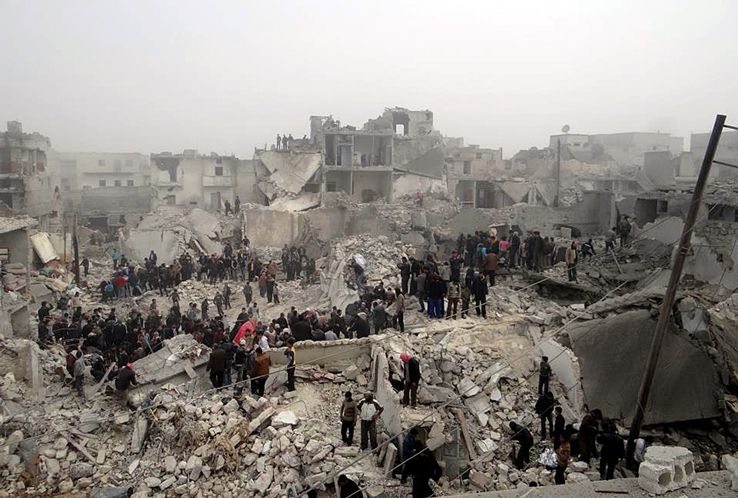The Battle of Aleppo Comes to a Close
January 10, 2017
As of mid- December, Syrian government forces under president Bashar Al-Assad have successfully captured the city of Aleppo, a key strategic city. The Battle of Aleppo began in 2012 with various rebel groups, the largest being the Free Syrian Army, fighting against the Assad dictatorship. Government forces gained the upper hand in 2013, when Iran began assisting Assad’s war effort. However, it was not until September 2015 that government forces began to gain considerable ground. At this time, Russia directly joined the conflict, backing Assad’s government. Russian warplanes and helicopters were supposedly bombing ISIS held positions in the city, but it soon became clear that their strikes were targeted at rebels. In July, 2016, the last rebel supply lines were cut. Until the rebel surrender, civilians in rebel-held Eastern Aleppo were forced to endure starvation, and a severe lack of medical care.
“Disgusting” is an understatement for the horrible atrocities committed by the Syrian Regime throughout the battle. The battle included the worst fighting so far in the Syrian Civil War, claiming the lives of 31,000 people, most of which were civilians. The Assad Regime used brutal tactics to subjugate the rebel forces in Aleppo, many of which could easily be considered war crimes. Airstrikes and artillery shellings in civilian neighborhoods were common, and a siege of the remaining rebel held territory, beginning in July, cut nearly 100,000 civilians off from food, water, and medical supplies. Among the worst of the crimes were two reported uses of chemical warfare by the Syrian Regime, and the use of “barrel bombs”, which are highly inaccurate and are designed to cause immense collateral damage. The UN Commissioner for Human Rights, Zeid Ra’ad Al Hussein, said “the attacks are not simply tragedies; they also constitute crimes of historic proportions.”
“The attacks are not simply tragedies; they also constitute crimes of historic proportions.”
— Zeid Ra'ad Al Hussein
While the worst of the crimes were committed by the government, the rebels were not entirely innocent either. Many factions used “hell cannons”, which are homemade mortars that are very difficult to aim accurately. As a result, many innocent civilians in government-held territory were killed.
Along with these atrocities, much of the Old City of Aleppo, a UNESCO World Heritage Site, was destroyed in the fighting. Along with the destruction of the ancient city of Palmyra, this marks another site of cultural significance destroyed in the war.
In terms of the international playing field, this result is a huge loss for the US. Russia and Iran both directly entered the war, and their gamble paid off. The entire issue was a very complicated decision for US policymakers, who faced 3 options: Supporting a brutal dictator, supporting rebels who’s motives are relatively unknown, or staying out and allowing this violence to continue. The Russians and Iranians however, chose to support the dictator, which has given them huge influence in the region, and has pushed the US almost entirely out of deciding Syria’s fate
“I think what happened in Syria is tragic,” said WHHS senior Scott Moroch. “However, I think we made the right decision because Americans just don’t want to be involved in another Middle-East conflict, especially at the cost of American lives”.
This victory has given Assad leverage, but it will likely not be enough to bring rebels to the negotiating table. Despite Russian and Iranian involvement, rebels still hold large swaths of territory throughout Syria. The rebels winning the war is very unlikely, but even Assad said about the battle of Aleppo that “let’s be realistic. It won’t mean the end of the war in Syria.”
















